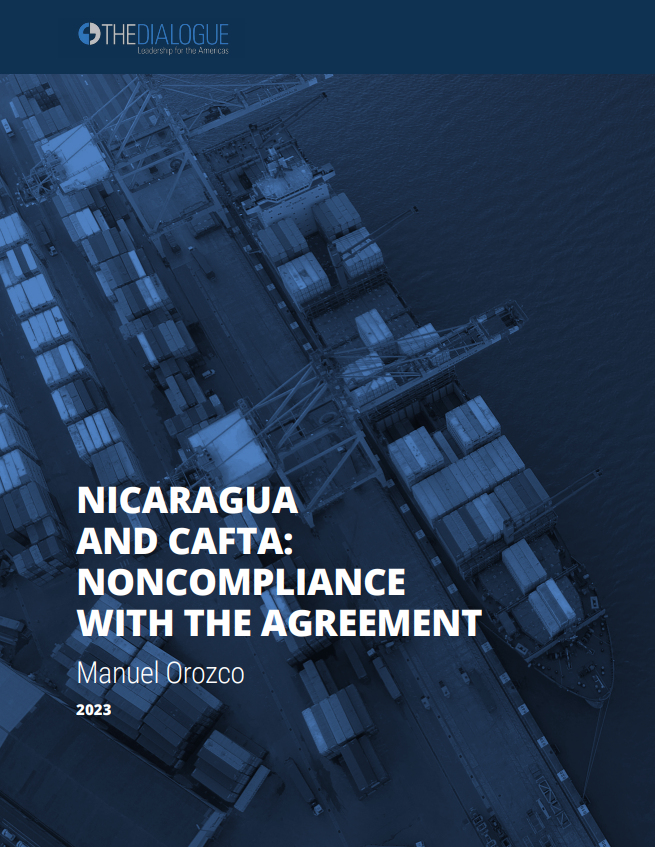IACHR Report on Citizen Security & Human Rights
Citizen security remains a top concern for most Latin American governments as crime and violence spiral out of control and cripple political and economic institutions in the region.
This post is also available in: Español
The purpose of this memo is to note the existence of partial violations to the Central America and Dominican Republic Free Trade Agreement with the United States known as CAFTA-DR. Nicaragua is an active party to CAFTA-DR and one of the few countries that has experienced large increases of exports to the US during this period. The Nicaraguan government is actively neglecting compliance with the labor and environment side of its trade agreements and should be held accountable. Nicaragua has broken its compliance with the trade agreement on several grounds.
First, it has violated the labor side of the agreement insofar as union and other labor rights in the free trade zones are subordinated by the Sandinista National Liberation Front (FSLN), who fully control trade unions. As of February 2023, there were 187 businesses in the free trade zone and workers in many of those segments are under Sandinista control. Chapter 16 article 16.2 of the free trade agreement stipulates that parties shall not fail to effectively enforce their labor laws. In the case of Nicaragua, the government is not protecting rights of workers, including those in the free trade zone that largely exports to the United States. Nicaragua is also violating Chapter 17, particularly 17.2 of the environmental side of the agreement, as well as Chapter 12 on market access for financial institutions.
The memo looks at these violations and identifies options for redress.
Citizen security remains a top concern for most Latin American governments as crime and violence spiral out of control and cripple political and economic institutions in the region.
Colombia is in the midst of a mining boom. The challenge for President Santos is to capitalize on the sector’s promise.
Ecuador may well play a decisive role in the outcome of the global tension between economic development and environmental conservation.
 Cover Photo: Rafael de Campos / Unsplash
Cover Photo: Rafael de Campos / Unsplash
